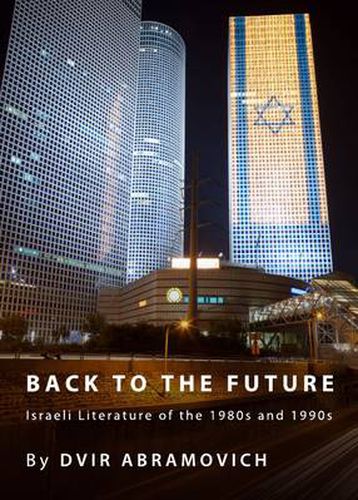Readings Newsletter
Become a Readings Member to make your shopping experience even easier.
Sign in or sign up for free!
You’re not far away from qualifying for FREE standard shipping within Australia
You’ve qualified for FREE standard shipping within Australia
The cart is loading…






This compelling and incisive study opens a fascinating window to the key genres of writing that emerged during these norm-defying decades and provides new understandings about how contemporary Israeli literature evolved to be what it is today.
Abramovich examines the social and political background for the dramatic and broad transformations that took place in Israeli society during this period of transition- the Yom Kippur War, the election of the Likkud Party, The Lebanon War, the rise of postmodernism, the impact of feminism, the collapse of national consensus- and links those developments to the literary changes that seeped into the fabric of Israeli writing of that time.
The book deals with three pivotal areas that emerged and flowered in the 1980s and 1990s - Second Generation Holocaust literature, the Mizrachi novel, and detective fiction - and meticulously and comprehensively analyses the works’ subject-matters, ideas and aesthetic strategies. Extensively discussed and evaluated are the groundbreaking themes found in the stories of authors David Grossman, Sami Michael, Ronit Matalon, Batya Gur, Eli Amir, Shulamit Lapid, Itamar Levy, Gila Almagor, Nava Semel, Dorit Rabinyan, Yitzhak Gormezano Goren, and Lily Peri Amitai.
From best-sellers to cult-classics, from the mainstream to the marginal, Back to the Future: Israeli Literature of the 1980s and 1990s is an important and book that celebrates the creative energy of Israeli arts and is sure to become a must-read for anyone interested in Israeli culture and fiction.
$9.00 standard shipping within Australia
FREE standard shipping within Australia for orders over $100.00
Express & International shipping calculated at checkout
This compelling and incisive study opens a fascinating window to the key genres of writing that emerged during these norm-defying decades and provides new understandings about how contemporary Israeli literature evolved to be what it is today.
Abramovich examines the social and political background for the dramatic and broad transformations that took place in Israeli society during this period of transition- the Yom Kippur War, the election of the Likkud Party, The Lebanon War, the rise of postmodernism, the impact of feminism, the collapse of national consensus- and links those developments to the literary changes that seeped into the fabric of Israeli writing of that time.
The book deals with three pivotal areas that emerged and flowered in the 1980s and 1990s - Second Generation Holocaust literature, the Mizrachi novel, and detective fiction - and meticulously and comprehensively analyses the works’ subject-matters, ideas and aesthetic strategies. Extensively discussed and evaluated are the groundbreaking themes found in the stories of authors David Grossman, Sami Michael, Ronit Matalon, Batya Gur, Eli Amir, Shulamit Lapid, Itamar Levy, Gila Almagor, Nava Semel, Dorit Rabinyan, Yitzhak Gormezano Goren, and Lily Peri Amitai.
From best-sellers to cult-classics, from the mainstream to the marginal, Back to the Future: Israeli Literature of the 1980s and 1990s is an important and book that celebrates the creative energy of Israeli arts and is sure to become a must-read for anyone interested in Israeli culture and fiction.